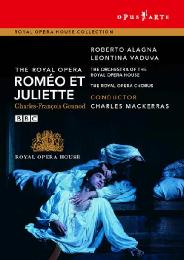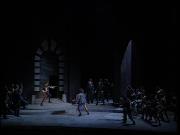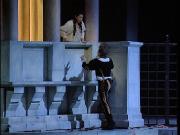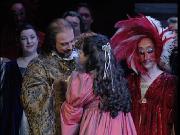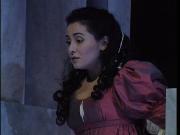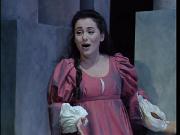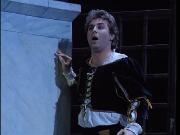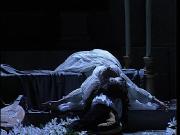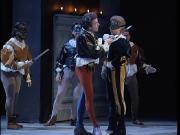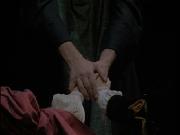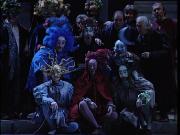Changes made to Gounod: Roméo et Juliette
Revision 3
Created on Monday, 2nd November 2009, 11:54
Change Submitted by Alan Titherington
List of Changes:
- Title changed from Review to Gounod: Roméo et Juliette
-
Change #1 - <newline>
<newline>[
imgmc=0000205742.jpg|0000109197url="http://www.myreviewer.com/default.asp?a=0000109197"][imgmc=0000205742.jpg][/url] <newline>[ -
Change #2 - <newline>
<newline>[
imgmc=0000205745.jpg|0000109200url="http://www.myreviewer.com/default.asp?a=0000109200"][imgmc=0000205745.jpg][/url] <newline> -
Change #3 - it.[
imgmc=0000205740.jpg|0000109195url="http://www.myreviewer.com/default.asp?a=0000109195"][imgmc=0000205740.jpg][/url] <newline>I -
Change #4 - <newline>
<newline>[
imgmc=0000205746.jpg|0000109201url="http://www.myreviewer.com/default.asp?a=0000109201"][imgmc=0000205746.jpg][/url] <newline>
Revision 2
Created on Monday, 20th October 2008, 14:56
Change Submitted by Alan Titherington
List of Changes:
-
Change #1 - 01]
<newline>
<newline>T
the [apost]mino
Revision 1
Created on Monday, 20th October 2008, 06:57
Change Submitted by Alan Titherington
List of Changes:
-
Change #1 - <newline>
<newline>This
verparticularly romant -
Change #2 - atta
), Gounod[apost]s music grabs the attention in much the same way as Puccini would many years later, and to be honest, I[apost]m amazed at how much of this music sounds as if it came from the pen of that most sentimental of italian composers. <newline> <newline>Wonderfully dramatic, with some decent characterisations and great melodic outpourings, make this one of Gounod[apost]s most touching works, yet it makes demands of everyone involved, not least the listener. Sometimes, you can have too much of a good thing, and just like many accuse Puccini of deliberately over-tugging the heart strings, the same can be said about this music. <newline> <newline>With Charles Mackerras (who obviously has a great fondness for this work) at the helm, and the ROH orchestra on their best form, the music acquires a depth and emotion which raises it above the cheesiness often attributed to it.[imgmc=0000205740.jpg|0000109195] <newline>It also helps having such fine singing from [i]all[/i] the cast - something you can[apost]t often say. <newline> <newline>Leontina Vaduva (Juliette), is a fresh and vivacious actress despite not exactly looking like a fresh and vivacious young girl. Her voice is spectacular, and becomes more [apost]womanly[apost] as the story progresses. A vocal part like this is frighteningly difficult, and can only be completely convincing when someone is in their prime, as Vaduva obviously is. Nothing is wasted here. <newline> <newline>Roberto Alagna (Romeo) is also at his vocal peak, almost making it sound easy. The unfortunate thing is that his acting, what there is of it, is absolutely atrocious. There appears to be little or no emotion in his face. Rather, he spends much of his time with his eyes shut, or just not paying attention to Vaduva at all, which is a bit off at the best of times, and just plain rude in the love duets. <newline> <newline>A more cynical reviewer may think that he was only interested his own performance (vocally, at least). A little more attention to his fellow cast members would have been a bonus, but this mild streak of [apost]narcissism[apost] actually spoils the death scene, which should be far more involving than it actually is. <newline> <newline>[imgmc=0000205746.jpg|0000109201] <newline> <newline>Tthe [apost]minor[apost] cast members impress greatly, especially François le Roux (Mercutio) and Paul Charles Clarke (Tybalt), who actually manage to extract some sympathy from the viewer, despite the fact that it is they who are the catalysts for the tragic ending. Alagna is no match for these two. <newline> <newline>Robert Lloyd (Friar Lawrence), Sarah Walker (Gertrude) and David Wilson-Johnson (the Duke), all give well-rounded performances. Wilson-Johnson in particular showing great nobility in his relatively small role- which is irrelevant, but I like to keep things in perspective), Gounod[apost]s music grabs the attention in much the same way as Puccini would many years later, and to be honest, I[apost]m amazed at how much of this music sounds as if it came from the pen of that most sentimental of Italian composers. <newline> <newline>Wonderfully dramatic, with some decent characterisations and great melodic outpourings, make this one of Gounod[apost]s most touching works, yet it makes demands of everyone involved, not least the listener. Sometimes, you can have too much of a good thing, and just like many accuse Puccini of deliberately over-tugging the heart strings, the same can be said about this music. <newline> <newline>With Charles Mackerras (who obviously has a great fondness for this work) at the helm, and the ROH orchestra on their best form, the music acquires a depth and emotion which raises it above the cheesiness often attributed to it.[imgmc=0000205740.jpg|0000109195] <newline>It also helps having such fine singing from [i]all[/i] the cast - something you can[apost]t often say. <newline> <newline>Leontina Vaduva (Juliette), is a fresh and vivacious actress despite not exactly looking like a fresh and vivacious young girl. Her voice is spectacular, and becomes more [apost]womanly[apost] as the story progresses. A vocal part like this is frighteningly difficult, and can only be completely convincing when someone is in their prime, as Vaduva obviously is. Nothing is wasted here. <newline> <newline>Roberto Alagna (Romeo) is also at his vocal peak, almost making it sound easy. The unfortunate thing is that his acting, what there is of it, is absolutely atrocious. There appears to be little or no emotion in his face. Rather, he spends much of his time with his eyes shut, or just not paying attention to Vaduva at all, which is a bit off at the best of times, and just plain rude in the love duets. <newline> <newline>A more cynical reviewer may think that he was only interested his own performance (vocally, at least). A little more attention to his fellow cast members would have been a bonus, but this mild streak of [apost]narcissism[apost] actually spoils the death scene, which should be far more involving than it actually is. <newline> <newline>[imgmc=0000205746.jpg|0000109201] <newline> <newline>Tthe [apost]minor[apost] cast members impress greatly, especially François le Roux (Mercutio) and Paul Charles Clarke (Tybalt), who actually manage to extract some sympathy from the viewer, despite the fact that it is they who are the catalysts for the tragic ending. Alagna is no match for these two. <newline> <newline>Robert Lloyd (Friar Lawrence), Sarah Walker (Gertrude) and David Wilson-Johnson (the Duke), all give well-rounded performances. Wilson-Johnson in particular showing great nobility in his relatively small role, and Lloyd[apost]s sonorous bass sounds as good as ever (and despite the tonsure, he still has considerably more hair than when I last saw him in Aida). <newline>
Initial Version
Created on Sunday, 19th October 2008, 23:00
First Submitted by Alan Titherington
